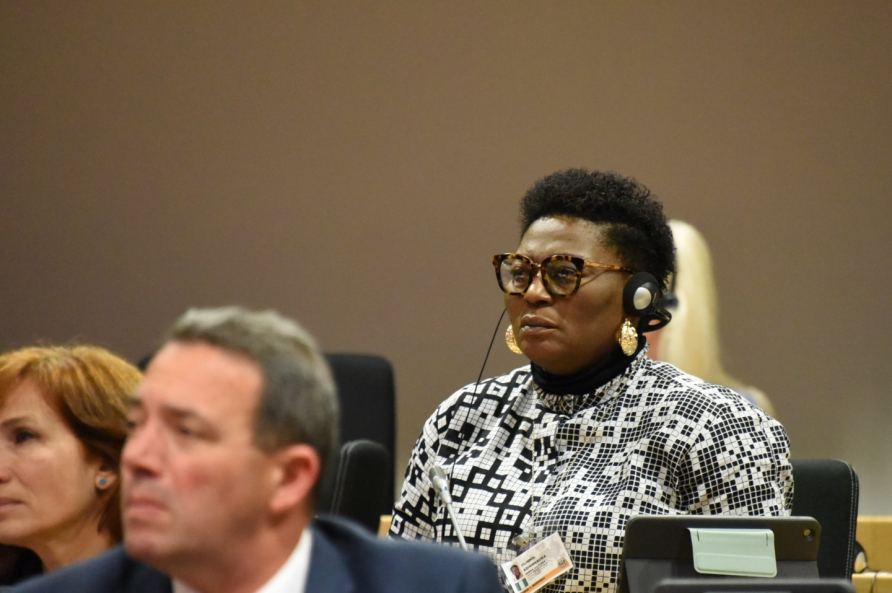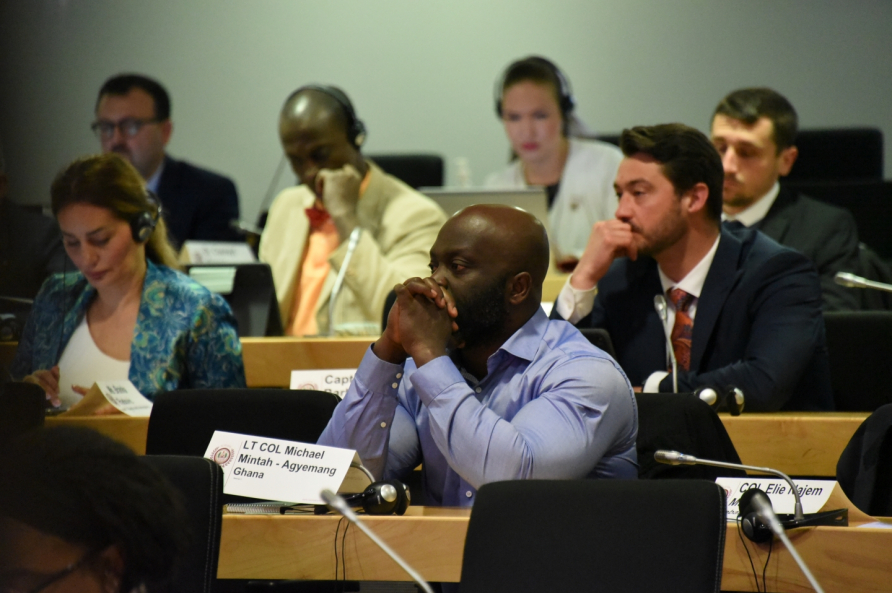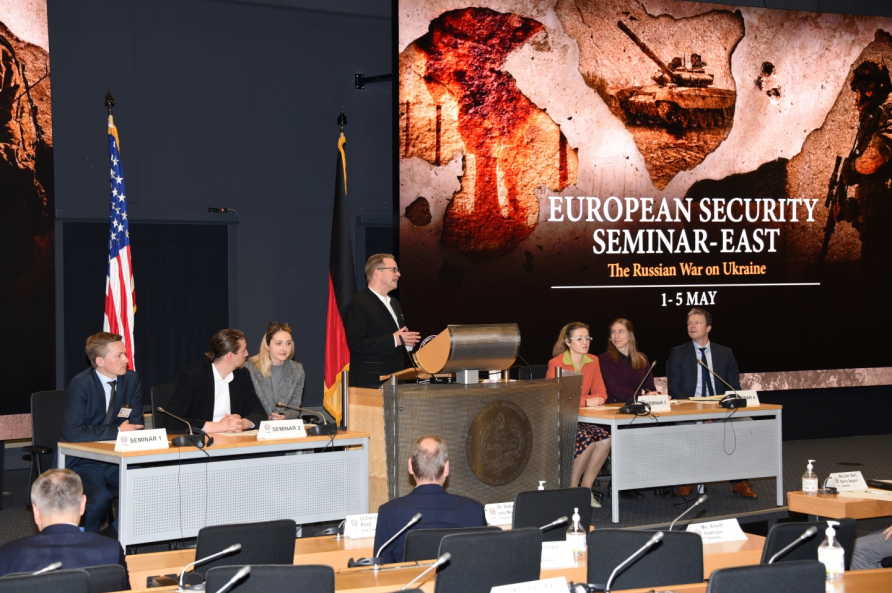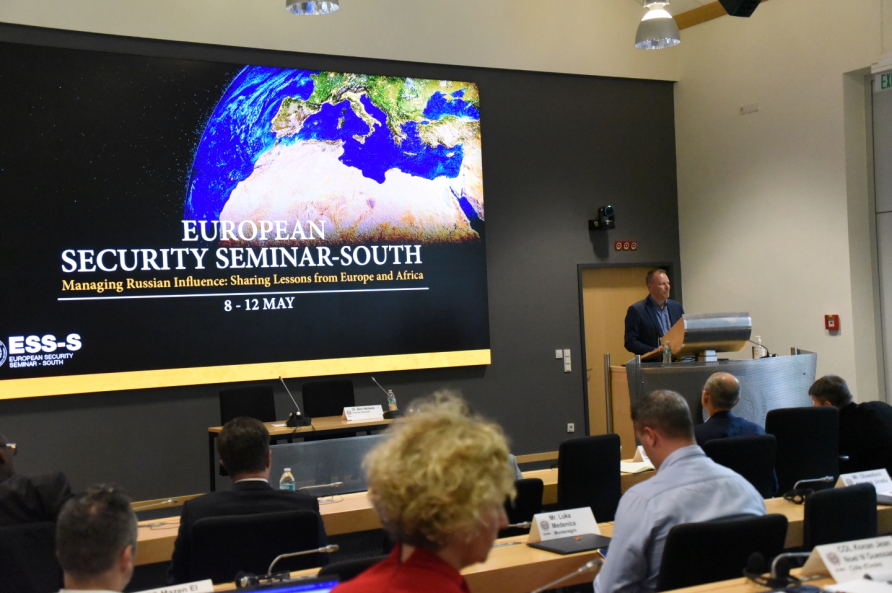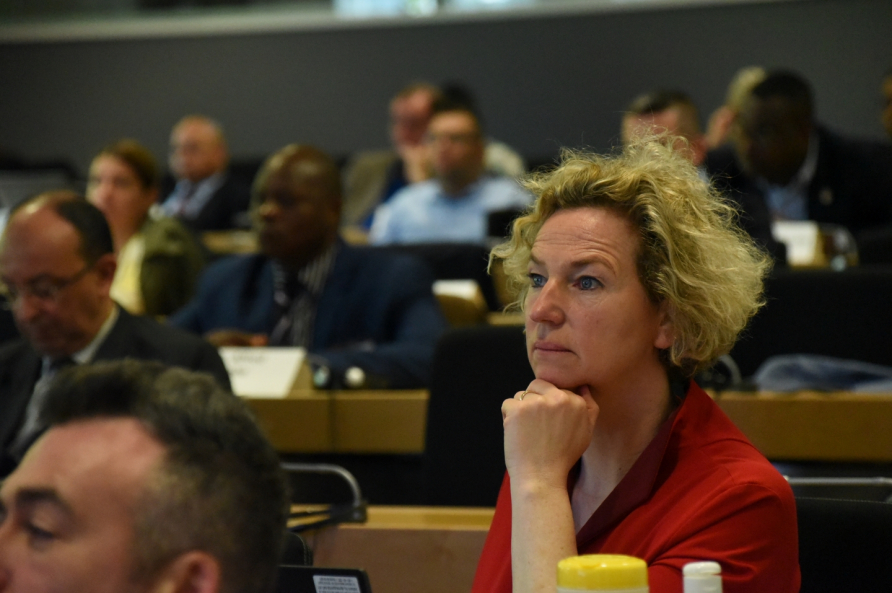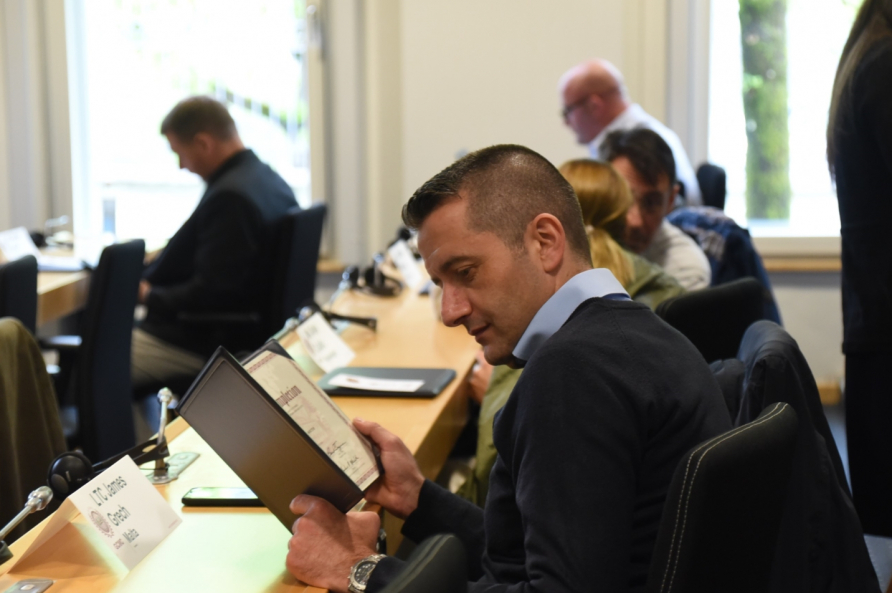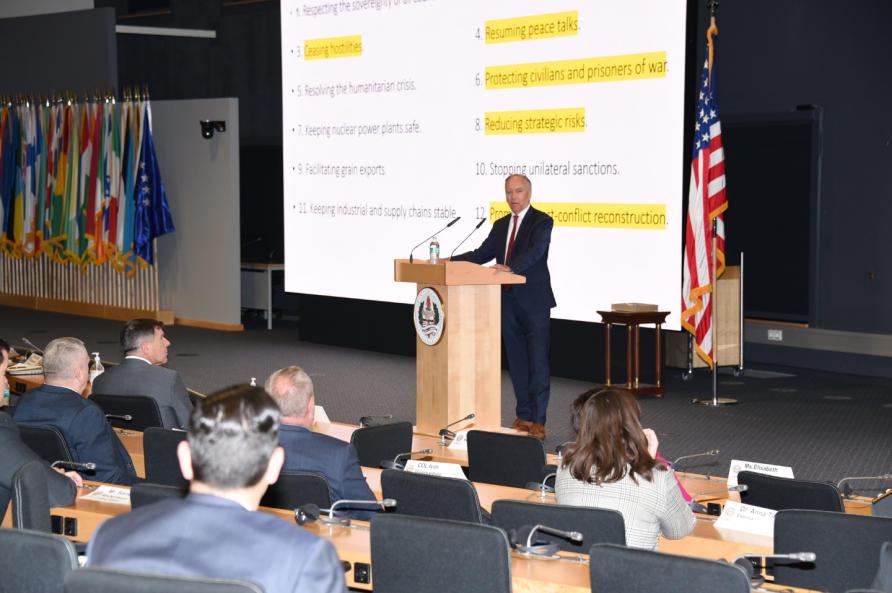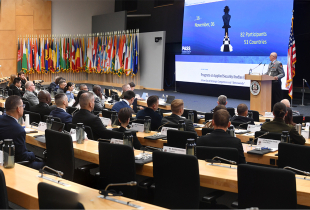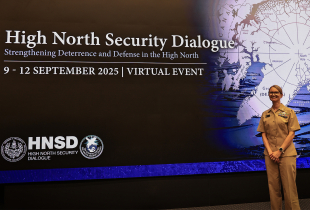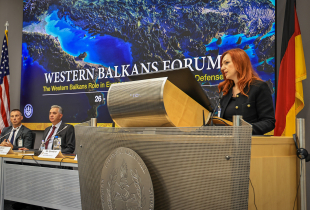The Seminar on Regional Security Concludes with Deep Dive into European Periphery
The Seminar on Regional Security wrapped up its course in a graduation ceremony held May 12 at the George C. Marshall European Center for Security Studies in Garmisch-Partenkirchen.
“Just a month ago, you were all strangers,” said Marshall Center deputy director retired Brig. Gen. Tim McAteer in his closing remarks to the participants. “But because of your seminar facilitators, you will leave here as professional colleagues and international friends.”
The four-week seminar brought together almost 40 mid-level security practitioners working in the government and civilian sector from over 30 different countries aiming to contribute to the overall understanding of relevant key security developments that impact security in and around Europe and related requirements concerning the reinforcement of defense, deterrence, and resilience.
This year, SRS was held in conjunction with two other week-long courses – European Security Seminar – East and South.
“Combining SRS and ESS series enabled SRS participants to deep dive into two important regions on the European periphery,” said Col. Konrad Lau, deputy course director for the College of International and Security Studies. “It also doubled the opportunity for SRS, ESS-E and ESS-S students to network with participants from the other course.”
After covering key issues related to regional security in the first two weeks of the course, the third week of SRS started with a highlight. Professor Barry Buzan, a renowned security studies scholar, participated in a panel to discuss the pertinence of his theory on “Regional Security Complexes.” As he explained, the war in Ukraine is about the hardening of boundaries between security complexes, raising questions about which security complex, Europe, or Russia, will Ukraine become a part of.
Then, participants of SRS and ESS-E came together to jointly examine the current environment of Europe’s East. They started with lectures on the systemic evolution of Russia’s strategic behavior and Putin’s operational code as well as a panel on the current and future regional implications of Russia’s invasion of Ukraine.
Yevgeniya Gaber Atlantic Council’s non-resident Senior Fellow argued, “We cannot refer to Ukraine as being in the ‘post-soviet space’ but rather in the ‘pre-EU, pre-NATO space’ because rhetoric matters.”
In the following sessions, the focus shifted to strategic rearrangement in the Baltics and systemic fracturing in Central Asia.
In the latter region, states balance between Russia, the West and China, while, according to Dr. Pal Dunay, Professor of NATO and European Security Issues at the Marshall Center, “Disenchantment with the Political West doesn’t mean Russia is popular.”
Broadening the debate, participants examined the wider socio-economic developments in Europe’s East but also discussed the opportunities and challenges of EU enlargement. As the week drew to a close, ESS-E course director Sebastian von Münchow summed it up by saying, “(ESS-E) delivered an overview of the political, economic and social implications vis-à-vis Russia, Ukraine, the wider Euro-Atlantic community, the Baltic Sea and the Caucasus. The seminar encouraged participants to reflect upon readjusted regional relations and courses of action, especially for NATO and the EU, to adapt to a changed security environment resulting from the -scale invasion.”
The following week, SRS pivoted south, and joined ESS-S, a one-week course, bringing together security practitioners from Europe, Africa, the Mediterranean, the Middle East and the U.S. Russia continued to feature prominently in the panels and discussions, which covered its official and unofficial engagement on the African continent.
Dr. Joseph Siegle, Director of Research at the Africa Center for Strategic Studies warned against the “inherent destabilization” of Russian involvement. At the same time, Financial Times’ Aanu Adeoye explained the reasons why some African governments choose the engage with Russia: “When your house is burning, you don't care where the help is coming from.”
Dr. Harry Verhoeven, Senior Research Scholar at the Center on Global Energy Policy at Columbia University, cautioned against “the danger of Cold War memories resurfacing and informing European or North American security policy vis-à-vis African and Middle Eastern states.”
The subsequent panels provided a comparison between different regions in Europe’s East and South and highlighted the parallels and differences of Russia’s regional and extra-regional foreign policies.
The final two weeks of SRS left participants with deep insight into and understanding of the security environment of two different regions, expanding and sharpening their understanding of regional security.
In the closing panel, keynote speaker Amb. Fred Tanner of the Geneva Centre for Security Policy reminded participants of the most pressing regional security issue of this time: the invasion of Ukraine. Assessing the current state of diplomacy concerning the war, he emphasized the role of mediation.
“Mediation can prevent a protracted war, as well as mitigate the risk of escalation,” Tanner said.
With the call to not only study security policy, but to actively shape it, course director Dr. Bernhard Wigger released the participants of 2023’s Regional Security Seminar to return to their positions in their home countries, with a raft of new knowledge, ideas and connections.
The George C. Marshall Center for Security Studies, founded on June 5, 1993, is a renowned international security and defense studies institute. A bilateral partnership between the U.S. and Germany, it is a lasting cooperation that promotes dialogue and understanding among the nations of North America, Europe and Eurasia. In 2023, the Marshall Center marks its 30th anniversary, re-emphasizing its commitment to carrying Marshall’s vision, an enduring legacy that continues through the security education initiatives of the Center.
